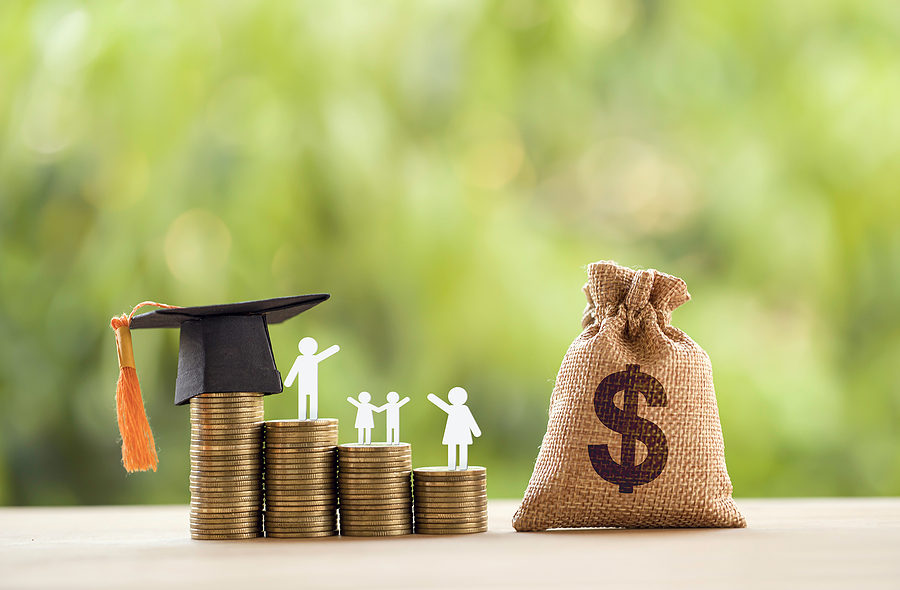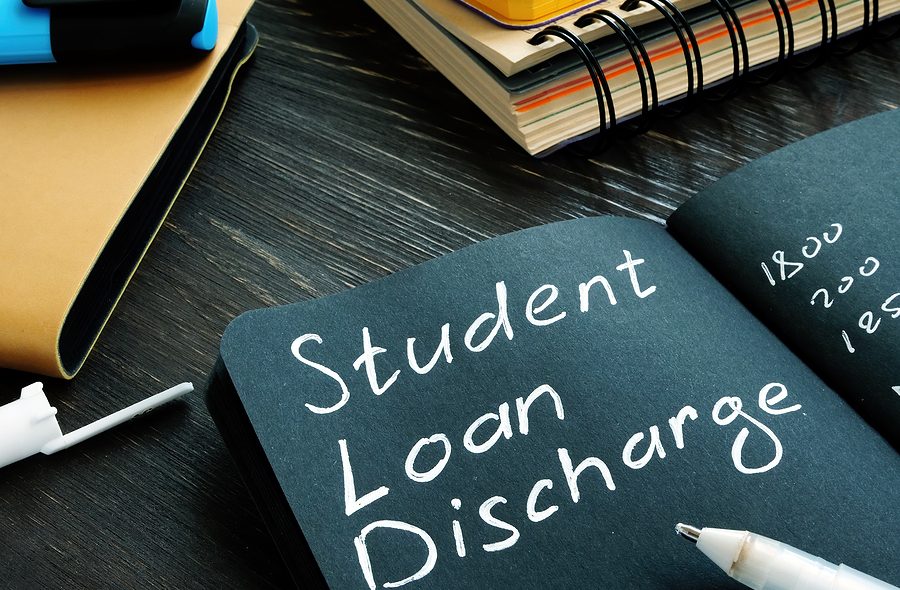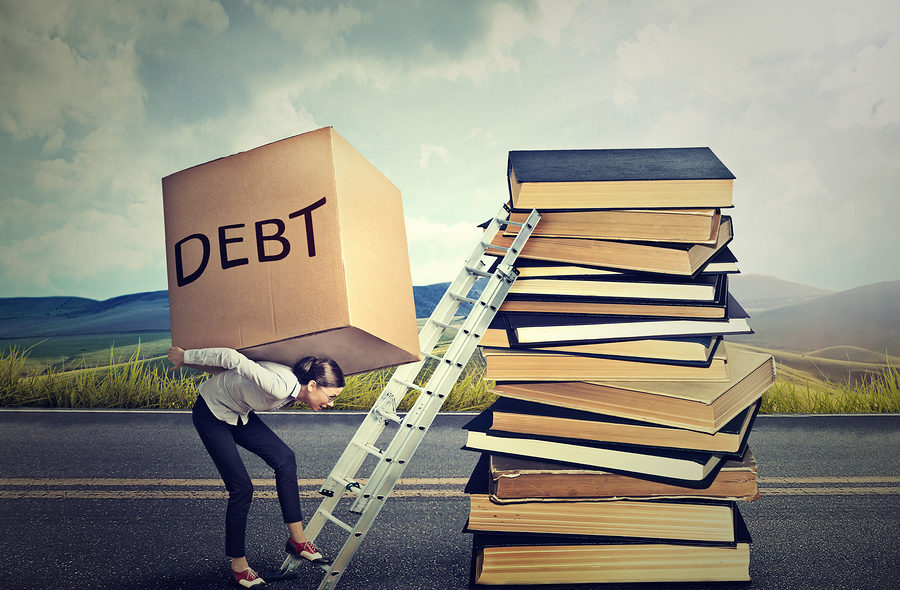Debt plagues so many Americans today, but the type of debt varies from person to person. When it comes to debt collections or even bankruptcy, how the debt is treated depends on the type of debt. Student loan debt is one category that is treated differently than other common debt categories involved in bankruptcy.
Student loan debt has doubled since the most recent recession, which presents a major problem for many borrowers who are struggling to repay their loans, so it is extremely important to understand how student loan debt is treated in bankruptcy and collection matters.
Debts normally fall into two different categories: secured and unsecured. Secured debt is “secured” by either another person or an asset purchased, meaning if the consumer defaults on the debt, the lender has recourse to seize the asset.
Unsecured debt is not connected to another person or asset and commonly includes credit cards, personal loans, and medical debt. Student loan debt is also another form of unsecured debt, although it is not treated the same way as other unsecured debt. One major difference is the fact that student loan debt does not go away so easily.
If the borrower fails to pay on a student loan, the lender will likely initiate a collection action, which will result in a judgment against the consumer and likely a garnishment of that person’s wages. The same situation occurs with any other unsecured debt, but the difference is student loan debt is not easily discharged through bankruptcy.
It is possible, but the legal standard that needs to be met for this to be done is quite strict. The borrower will need to prove to the court that a good faith effort has been made to repay the loan, as well as proving undue hardship that is likely to continue if the debt is not discharged. It is not an easy burden of proof, and if the court does not discharge the debt, it will remain with the individual once the bankruptcy is over.
Student loans include both federal and private loans. Those loans that are federal are backed by the federal government and are disbursed by the U.S. Department of Education. On the other hand, private loans are backed by private lending institutions. The difference is critical in that federal student loans are not restricted by a statute of limitation when it comes to collecting on the debt.
In addition, federal loans have certain protections that private loans do not and offer different types of repayment plans in the event the borrower’s life circumstances change. For the most part, federal loan repayment terms are around ten years, but they can be extended or graduated or even income-based in terms of repayment. Additionally, some federal loans offer forgiveness programs.
Private student loans are oftentimes a last resort when it comes to financing education. However, many students max out their federal lending and have no choice but to supplement with private options given the cost of education.
It is currently estimated that somewhere around 40 percent of all student loan borrowers will default at some point on their student loans. Many different mistakes can be made when it comes to student loan repayment. If you believe you qualify for student loan debt relief, speak with an experienced bankruptcy attorney about your options.
Click here to read more on this story.
For borrowers who are struggling with student loan debt, relief options are available. Many student loan borrowers are unaware that they have rights and repayment options available to them, such as postponement of loan payments, reduction of payments or even a complete discharge of the debt. There are ways to file for bankruptcy with student loan debt. It is important you contact an experienced Miami bankruptcy attorney who can advise you of all your options. As an experienced CPA as well as a proven bankruptcy lawyer, Timothy Kingcade knows how to help clients take full advantage of the bankruptcy laws to protect their assets and get successful results. Since 1996 Kingcade Garcia McMaken has been helping people from all walks of life build a better tomorrow. Our attorneys help thousands of people every year take advantage of their rights under bankruptcy protection to restart, rebuild and recover. The day you hire our firm, we will contact your creditors to stop the harassment. You can also find useful consumer information on the Kingcade Garcia McMaken website at www.miamibankruptcy.com.




